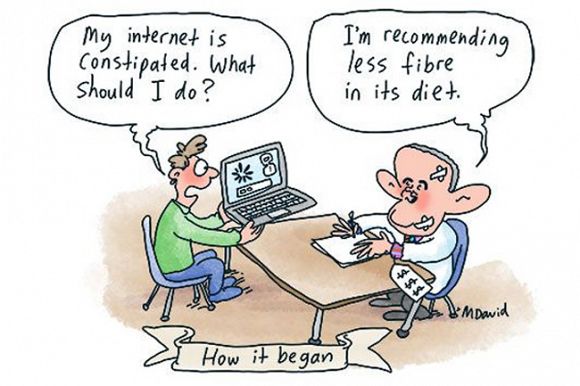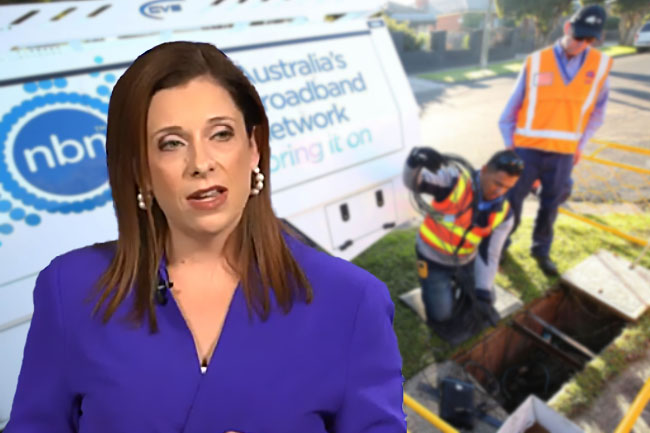Privatisation of Australia's broadband network would be a tricky process, but ultimately beneficial to us all, writes Paul Budde.
IT WAS GOOD to see the reactions to my article from last week. Some argued that I should have been far tougher on former Telstra CEO Andy Penn and that I left him too much slack.
Over the years, I have at regular intervals asked the industry leaders to speak out against the deplorable way the NBN had become a political football, but alas that didn’t happen. They are always worried to become embroiled in the politics. However, sometimes you have to be brave and dare to stand up when it is very clear that the policies in front of you are not only detrimental to the country but also to your own business (and your own shareholders).
Having said that, it is not much use to cry over spilled milk.
We need to move forwards and try to get the national broadband network in much better shape:
- on the technology side (FttH);
- from a financial point of view (the current business model is unsustainable); and
- most importantly, high-quality broadband needs to be affordable to all Australians.
However, more people took me up on my position of being in favour of the eventual privatisation of the NBN. So, I would like to clarify my position on this.
Looking back over my 40 years of involvement in the telecoms industry, I can't say that the Government has been a good manager of the industry. We have seen how Australia was held back during the period that Telstra was in the hands of the Government. As a government-owned monopoly, the company was able to make life very difficult for its competitors.
Furthermore, Telstra kept consumer and business prices of its telecoms services as high as possible. The Government let this happen as that also resulted in higher income from its shareholding in Telstra.
The current situation with the NBN is even worse if we see what the Government has made of its management — a total shamble. The last decade might be the worse example of that, with the NBN becoming a political football and with costs rising to unheard levels. Again, the NBN has grown into a government-owned wholesale monopoly and this is very hard to reign in.
With the high costs of the NBN investment, the Government is reluctant to force the NBN to charge lower prices to make it more affordable as that would have a direct negative effect on its investments in the company.
So, the track record of the Government managing telecoms infrastructure (and for that matter, energy infrastructure) is very poor.
Obviously, a totally free-market privatisation is no option and will never happen. Privatisation will always be subject to stringent regulatory oversight. With the right regulation and the right oversight, I prefer privatisation.
However, privatisation of the NBN cannot happen until the infrastructure is upgraded to FttH/FttP as per the original NBN plans as they were developed between 2009 and 2011 (for example, FttH to 94 per cent of the Australian population). Current technological developments could potentially even see the reach of FttH infrastructure a few percentage points higher than this.
Next, the Government will have to write off a significant part of the (excess) costs of the NBN as they are a result of political footballing and not of the “real” costs. Without political interference, the total costs of a close-to-full FttH/FttP network could have been significantly lower. Nobody is going to buy the NBN for a price that would have to cover all of the current costs of the investments (with further investments needed worth billions of dollars more).
We should also learn from the privatisation of Telstra. Here, the Howard Government, in order to maximise the sale price, watered down regulations. The latter is perhaps the most critical part of the privatisation process and the worrying part is that this is again fully open to political interference.
So, while privatisation is a tricky process, if we as a country are able to create the right conditions for it, this would be in the longer term my preferred option for the NBN.
Paul Budde is an Independent Australia columnist and managing director of Paul Budde Consulting, an independent telecommunications research and consultancy organisation. You can follow Paul on Twitter @PaulBudde.
Related Articles
- Former Telstra CEO regrets silence over NBN disaster
- Minister asks NBN Co to withdraw its proposal for price increases
- NBN Co asks ACCC for increased protection against mobile operators
- Commonwealth Bank partners with More to offer free or discounted NBN
- Affordable NBN pie in the sky without Labor's intervention
 This work is licensed under a Creative Commons Attribution-NonCommercial-NoDerivs 3.0 Australia License
This work is licensed under a Creative Commons Attribution-NonCommercial-NoDerivs 3.0 Australia License
Support independent journalism Subscribe to IA.














